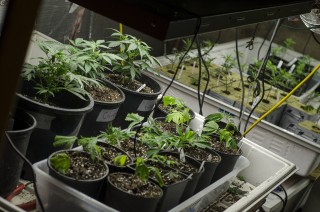The Colorado Department of Revenue reported $70 million in tax revenue from the sale of recreational marijuana, between July 2014 and June 2015. This history-making record easily topped the $42 million revenue the state made from alcohol in the United States within the same period of time. Marijuana has been so productive in Colorado that the state issued a tax holiday for marijuana items, proving that legalisation and proper regulation of the drug can significantly contribute its quota to revenue in any economy.
Marijuana is permitted or tolerated in about 30 cities and countries, like Argentina, Chile, Germany, Jamaica, and India, for medical use or personal consumption, albeit in small quantities. Uruguay became the first and only country to fully legalise the recreational usage of the drug in December 2013. And while there is no official stamp of legality, North Korea does not restrict the sale, possession, cultivation, or transportation of marijuana. In the United States, it is estimated that if marijuana is legalised on a federal level, a $3 billion per year tax revenue could be generated from it.
Despite scientific proof that consumption of alcohol and tobacco is more harmful to human health and lives than marijuana, sales of the former substances remain legal globally. Governments place high taxes on them in an attempt to discourage regular use, but they do not criminalise them. Tax revenue generated by tobacco worldwide amounts to about $300 billion annually, and it is alleged that economies would benefit more from increasing the rates.
Africa is presently the world’s third largest producer and user of cannabis at a global rate of 7.5 percent. The ‘conservative’ continent is no stranger to the use or possession of the drug, for which South Africa, Nigeria, Algeria, and Congo are well known. According to a local Swaziland farmer, families would be starving without marijuana.
Should different countries on the continent consider legalising the drug, they stand to gain benefits that go beyond earning tax revenue worth billions for its governments. Just as in the case of tobacco and alcohol, revenue from taxing substances like marijuana would go back into the economy to develop other sectors, such as the health.
Also, rather than spend money trying to prohibit marijuana use and break up cartels, changing the prohibition policy to a regulation policy would go a long way in saving costs. In some countries, the regulation of tobacco and alcohol has contributed to a visible decline in consumption. Perhaps, the method could work for countries like Nigeria, which has the highest number of cannabis seizures throughout the continent.
Sveveral countries are pushing for the legalisation of marijuana. Morocco, and recently South Africa, joined the list of countries such as Mexico, Spain, Argentina, Jamaica, and Canada that may achieve legalisation soon, especially with the record that Colorado has set in tax revenue earned.








